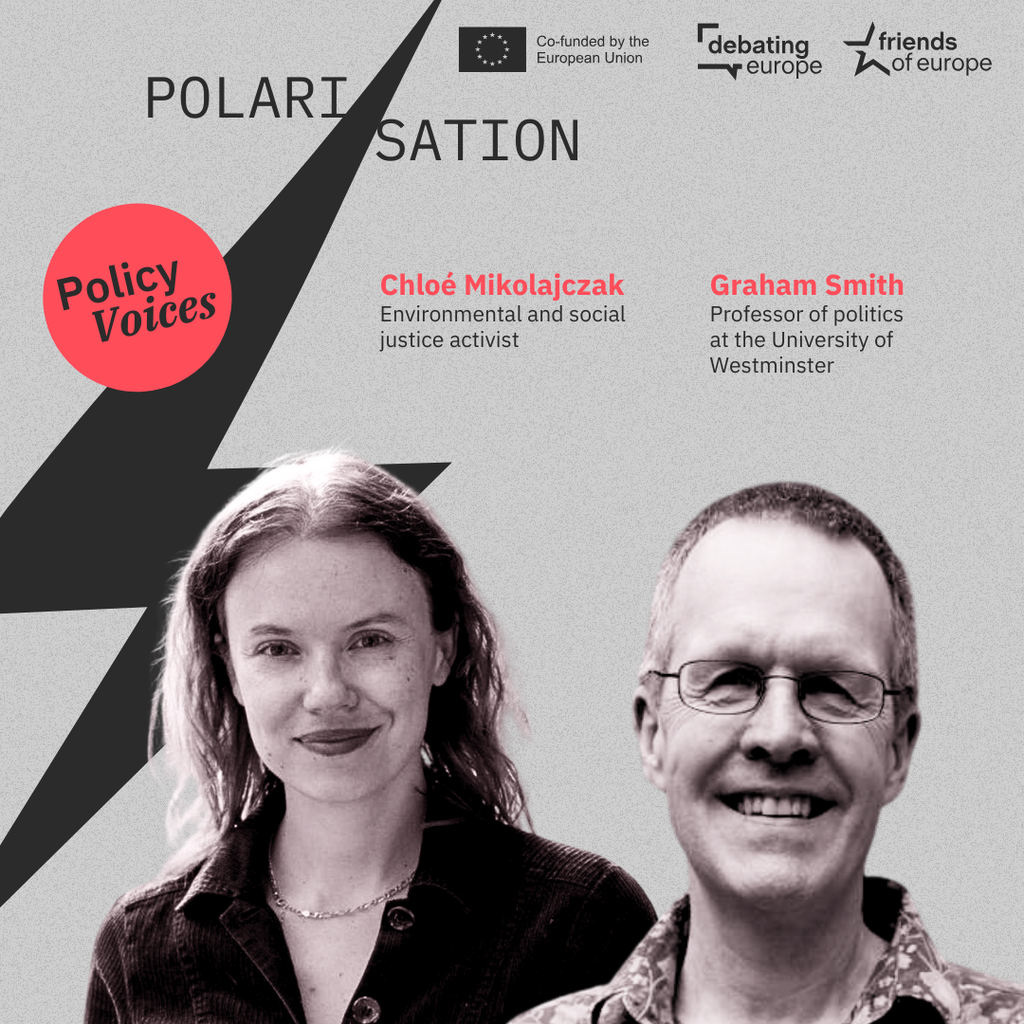Climate and Energy Summit 2025
Next event In person & livestreamed

- Area of Expertise
- Climate, Energy & Natural Resources
Climate, Energy & Natural Resources

Director of the International PtX Hub, part of Gesellschaft für Internationale Zusammenarbeit (GIZ)
The European Union made a very promising offer to many countries of the Global South: use your abundant solar and wind capacity to produce hydrogen and we will import ten million tonnes each year by 2030. Grow economically, become an energy world player based on your own renewable resources, help the North in their quest for energy security and become climate neutral at the same time… An overall win from which everyone benefits. Or is it? It becomes increasingly evident that populations in regions favoured by the Northern hydrogen enthusiasts have a different view.
They want to be sure that all the construction that comes their way has no negative effects on the environment, the social fabric of their communities and their economy, – above all – they want to participate. For instance, Magallanes in the southern part of Chile is a pristine region that attracts more tourists per year than there are people permanently populating it. Tourists flock to the famous Torre del Paine National Park and head down to Tierra del Fuego, the most southern tip of the continent, coined the ‘end of the world’. But Magallanes also has some of the world’s best potential for renewable energy, thanks to high and constant winds. Using just a tiny fraction of the land could turn it into a global giant for renewable energy and green hydrogen production.
Unsurprisingly, the region attracts investments from all corners of the globe. French Total Eren, for instance, plans to install 1,500 wind turbines, totalling 10 GW capacity), coupled with 10 GW electrolyser capacity, a desalination plant, an ammonia plant and port facilities. That is just one example. The potential of the Patagonian region could supply 13% of the world’s demand for green hydrogen. Thus, many more projects are in the planning and pre-feasibility stages.
The paradigm has changed: project developers do not see the involvement of local populations as a burden, best to be avoided, but as an insurance of their investment
Osvaldo Urzua, the head of a multidisciplinary group of local experts, is not opposed to this development – as long as it is managed and does not pose a threat to the unique landscape and potential of the region. Together with the International PtX Hub, part of the German Development Cooperation Agency GIZ, Urzua analyses how tourism, the protection of biodiversity, hydrogen and many other claims on the land can coexist in balance. The goal is to maximise the benefits for the local population and economy, and to have businesses of the Magallanes in the driving seat to ensure that developments are in tune with the pulse of the region. For example, Magallanes, together with HIF Global, opened an e-fuels laboratory to build knowledge and – in the medium term – switch the fully fossil-based electricity mix of the region to 100% renewables.
Without the buy-in of the local population, large investments in renewable energy and hydrogen production facilities will not materialise in other countries either. The practices of the past, when extractive industries sealed deals with national governments while ignoring the demands and the involvement of local populations, are no longer accepted. The paradigm has changed: project developers do not see the involvement of local populations as a burden, best to be avoided, but as an insurance of their investment. Project owners need certainty that they can run their plants over decades and earn the expected revenue. Better terms with the local population increase the likelihood that the operation runs frictionless. It is in the interest of the hydrogen project to divert some of the renewable energy it generates into the national grid or to oversize its desalination plant to provide nearby towns with drinking water. This becomes vital for the business case too.
It is in this kind of co-existence that a real win-win can be found. Royalties earned from the extractive industry could have the same effect – in theory. But in practice, as we have seen more often than not, the profits end up in the pockets of just a few and local residents are left empty-handed. The PtX Hub is now setting up a programme to formalise such public-private partnerships in which local governments and local businesses seal deals with large multinationals on joint use of renewable energy, infrastructure, skilled labour and much more.
What European governments may not want to hear is that industrial production will move to where the energy is cheapest
These measures will set the hydrogen producer and the local population on a growth and development path. But the real impact emerges when the hydrogen – or the ammonia or methanol – is not exported right away but rather stays in the local economy for further refinement and value addition: Power-to-X or PtX for short. What European governments may not want to hear is that industrial production will move to where the energy is cheapest. Instead of shipping iron ore and energy in the form of methane or ammonia to a European port and further on to industrial complexes, it makes much more economic sense to produce sponge iron as is it the first pre-product in the steel value chain in Mauretania, India or Brazil, and transport only that to Europe. This moves one energy-intensive production step out of Europe but keeps the higher value creation and the associated jobs – in this case, the processing from sponge iron to higher-value steel – close to demand centres in Europe.
With all the talk on hydrogen one tends to forget that this element is only an ingredient. What is really of interest is greening our industrial production, de-fossilising it, and at the same time becoming resilient towards both climate change and geopolitical upheaval. Hydrogen can be a facilitator for just that. Using cheap renewable energy in the most favourable places to stimulate the local economy and pave the way for them to play a different and more self-confident role in global value chains will make the difference. It will finally enable us to level the playing field for the Global South and North to cooperate and trade at eye level. The Global South needs resources, know-how and an export market. Europe needs renewable energy in the form of electrons and molecules to de-fossilise its economy. Our relationship is symbiotic. We either grow and bloom together or risk being side-lined by countries and regions that have both industry and renewable resources.
Related content:
This article is a contribution from a member or partner organisation of Friends of Europe. The views expressed in this #CriticalThinking article reflect those of the author(s) and not of Friends of Europe.
Next event In person & livestreamed

Past event In person & livestreamed

Past event In person & livestreamed

Past event In person & Livestreamed





Stay informed
We use cookies and similar technologies to adjust your preferences, analyze traffic and measure the effectiveness of our campaigns. Learn more about our privacy policy.